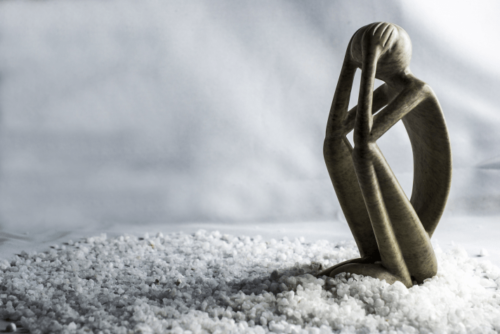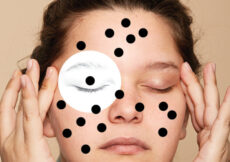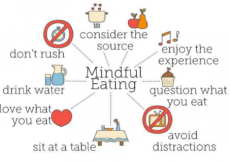February 8th, 2022
A fascinating analysis published in JAMA Psychiatry last week applies neuroscience and anthropology to explain why deaths of despair (suicide and poisoning by alcohol and drugs) are increasing in the United States but not in other industrialized countries:
A new report from the US National Academy of Sciences (NAS) states that US mortality rates are higher than a 16-nation control group (Australia, Austria, Belgium, Canada, Denmark, Finland, France, Germany, Italy, Japan, Norway, Portugal, Spain, Sweden, Switzerland, and the UK) at all ages from birth to approximately 80 years. This pattern has been evident for half a century, but the difference has grown dramatically since 2000.
University of Pennsylvania professors Peter Sterling and Michael L. Platt discovered that the mortality rise has been steepest “for White adults in rural areas, who tend to be the least educated and have the lowest income.” Overall life expectancy in the U.S. has been declining in recent years and today ranks 34th among all countries:
The largest contributors to rising mortality include deaths of despair, or deaths from suicide and drug poisoning related to addictions to opiates, cocaine, amphetamines, alcohol, and tobacco. Other major contributors include metabolic and cardiac causes (eg, hypertension, type 2 diabetes, coronary heart disease). Metabolic and cardiac etiologies of death are significantly driven by obesity, which has risen steeply for all racial and ethnic groups, particularly for those in low-resource settings.
Deaths of despair and metabolic and cardiac causes are linked: obesity may result from overeating and contributes to hypertension and type 2 diabetes, smoking contributes to heart disease, and so on. Overconsumption of rich food could also be classified with addiction to alcohol, opiates, and cocaine because, like those drugs, rich food (ie, sweet and greasy food) causes a release in dopamine. Obesity distributes by geography, education, and income, much like deaths of despair. Deaths from mass shootings, although numerically minor, rise in parallel with the more numerous deaths of despair and might be classified as murders of despair and suicide by police.
Professors Sterling and Platt compare and contrast the lives of ancient hunters and gatherers with modern Americans to help explain our modern culture of despair:
The small-scale societies of hunters and gatherers depend on strong family bonds and the cooperation of non–family members. To encourage this, the neural circuitry of the human brain delivers dopamine pulses for both giving and receiving. Cooperation is further facilitated by low levels of social and economic inequality. Such societies do use psychoactive plants and fermented drinks, but such use is ceremonial; the substances are unrefined and do not lead to drug addiction or alcoholism.
The hunter-gatherer life is associated with high levels of exercise, low levels of obesity, and low blood glucose levels. Blood pressures do not rise with age. Consequently, type 2 diabetes, hypertension, and cardiovascular disease are virtually unknown.
It’s those strong family bonds and cooperation with others that are missing for so many of our fellow citizens, marking a departure from Homo sapiens’ ancestral lifecycle — at least for those of us living in the United States. Those natural but necessary dopamine pulses that provide us physiologic and psychologic satisfaction and contentment have also gone missing:
However, as modern life grows more predictable, the sources of surprise and their consequent dopamine pulses shrink. It is the difference between a day’s hard walk to finally encounter and kill a wild pig to feed the family and community vs a quick trip to aisle 7 to select a pork roast in plastic wrap. Moreover, as modern life grows more isolating—as we sit alone and stare at screens—daily pulses are lost that were had from cooperative work and from sharing. Yet, we need dopamine pulses more acutely than vitamins, and lacking them, we grow uneasy and search restlessly for new sources.
Practically every other industrialized nation does things differently than we do in this country. This explains the general health of their populations and much lower levels of deaths of despair:
The 16-nation control group mitigates these difficulties by arranging, like our ancestors, to share some of the social product to smooth out economic and emotional fluctuations. Thus, public support is provided for prenatal care, maternal leave, preschool care, elementary and high school education, education beyond high school (when our ancestors were learning to hunt and gather), and substantial time off for noneconomic activities.
We may all be in this together, but we are not all in this together equally:
Individuals in the US with the strongest beginnings—sober parents, married or strongly paired—produce high-birth-weight infants who receive good nutrition. Such parents can afford medical insurance, help with early childcare, good schools in unpolluted neighborhoods, and college education. Further, they enjoy paid time off. Of course, they thrive! But many left to fend for themselves are poorly positioned; they lack all the advantages and perhaps even carry epigenetic burdens from previous generations in poverty. It is not surprising that many are overwhelmed and die.
Read more of this extraordinary special communication in JAMA Psychiatry here.




































